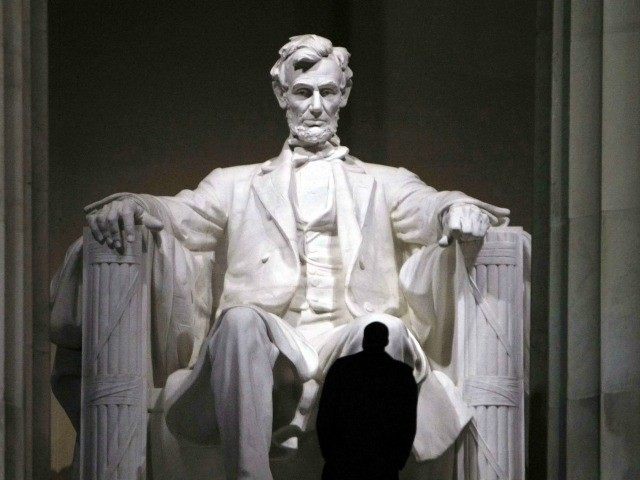In a speech given to the American people on July 7, 1863, President Abraham Lincoln marked the Union’s victory on July 4 by thanking God — “Almighty Ruler of Events” — for not coincidentally providing the victory on America’s birthday.
“Fellow-citizens: I am very glad to see you tonight. But yet I will not say I thank you for this call. But I do most sincerely thank Almighty God for the occasion on which you have called. How long ago is it? Eighty odd years since, upon the Fourth day of July, for the first time in the world, a union body of representatives was assembled to declare as a self-evident truth that all men were created equal.
That was the birthday of the United States of America. Since then the fourth day of July has had several very peculiar recognitions. The two most distinguished men who framed and supported that paper, including the particular declaration I have mentioned, Thomas Jefferson and John Adams, the one having framed it, and the other sustained it most ably in debate, the only two of the fifty-five or fifty-six who signed it, I believe, who were ever President of the United States, precisely fifty years after they put their hands to that paper it pleased the Almighty God to take away from this stage of action on the Fourth of July. This extraordinary coincidence we can understand to be a dispensation of the Almighty Ruler of Events.”
James R. Heintze, Faculty Emeritus at American University in 2009, researched Lincoln’s speech and provided some interesting background on one of Lincoln’s less famous speeches but one Heintze calls “important.”
Heintze introduced Lincoln’s speech by outlining these facts:
“On July 4, Lincoln passed up any opportunities to participate in Washington’s ceremonies. He was aware of the direction the Gettysburg engagement had taken on that day and was encouraged that Southern forces were retreating. But the President was also concerned about the Vicksburg campaign and was reluctant to participate in any sort of festive celebration until he heard news of that battle’s outcome. He did issue a brief statement in the form of a letter to the American people on July 4.
“Vicksburg surrendered to the Union on July 4, but the news did not reach Lincoln’s desk in the White House until July 7. About midday Secretary of the Navy Gideon Welles received the news and immediately went to the White House to report to Lincoln what he heard. Word spread quickly through the streets, taverns, and hotels in Washington. Crowds gathered and officers of the Thirty-Fourth Massachusetts Regiment promptly decided that a military parade to the White House was in order.
“That evening the parade of military accompanied by one or more bands of music commenced up Pennsylvania Avenue drawing hundreds of citizens as it made its way to the White House. At 8 p.m. with the immense throngs in front of the Executive Mansion, Lincoln, who was in the War Department, was compelled to respond and thus quickly returned to the White House.”
Heintze said that Lincoln’s speech was printed in newspapers across the country but in varying forms. He chose the one published in the Washington Evening Star on July 8, 1863.
Here is the remainder of Lincoln’s impromptu speech as published in that paper, give to the American people 154 year ago:
“Another of our Presidents, five years afterwards, was called from this stage of existence on the same day of the month, and now on this Fourth of July just past, when a gigantic rebellion has risen in the land, precisely at the bottom of which is an effort to overthrow that principle “that all men are created equal,” we have a surrender of one of their most powerful positions and powerful armies forced upon them on that very day. And I see in the succession of battles in Pennsylvania, which continued three days, so rapidly following each other as to be justly called one great battle, fought on the first, second and third of July; on the fourth the enemies of the declaration that all men are created equal had to turn tail and run.
Gentlemen, this is a glorious theme and a glorious occasion for a speech, but I am not prepared to make one worthy of the theme and worthy of the occasion. [Cries of “go on,” and applause.] I would like to speak in all praise that is due to the the [sic] many brave officers and soldiers who have fought in the cause of the Union and liberties of this country from the beginning of this war, not on occasions of success, but upon the more trying occasions of the want of success. I say I would like to speak in praise of these men, particularizing their deeds, but I am unprepared. I should dislike to mention the name of a single officer, lest in doing so I wrong some other one whose name may not occur to me.
Recent events bring up certain names, gallantly prominent, but I do not want to particularly name them at the expense of others, who are as justly entitled to our gratitude as they. I therefore do not upon this occasion name a single man. And now I have said about as much as I ought to say in this impromptu manner, and if you please, I’ll take the music.”

COMMENTS
Please let us know if you're having issues with commenting.